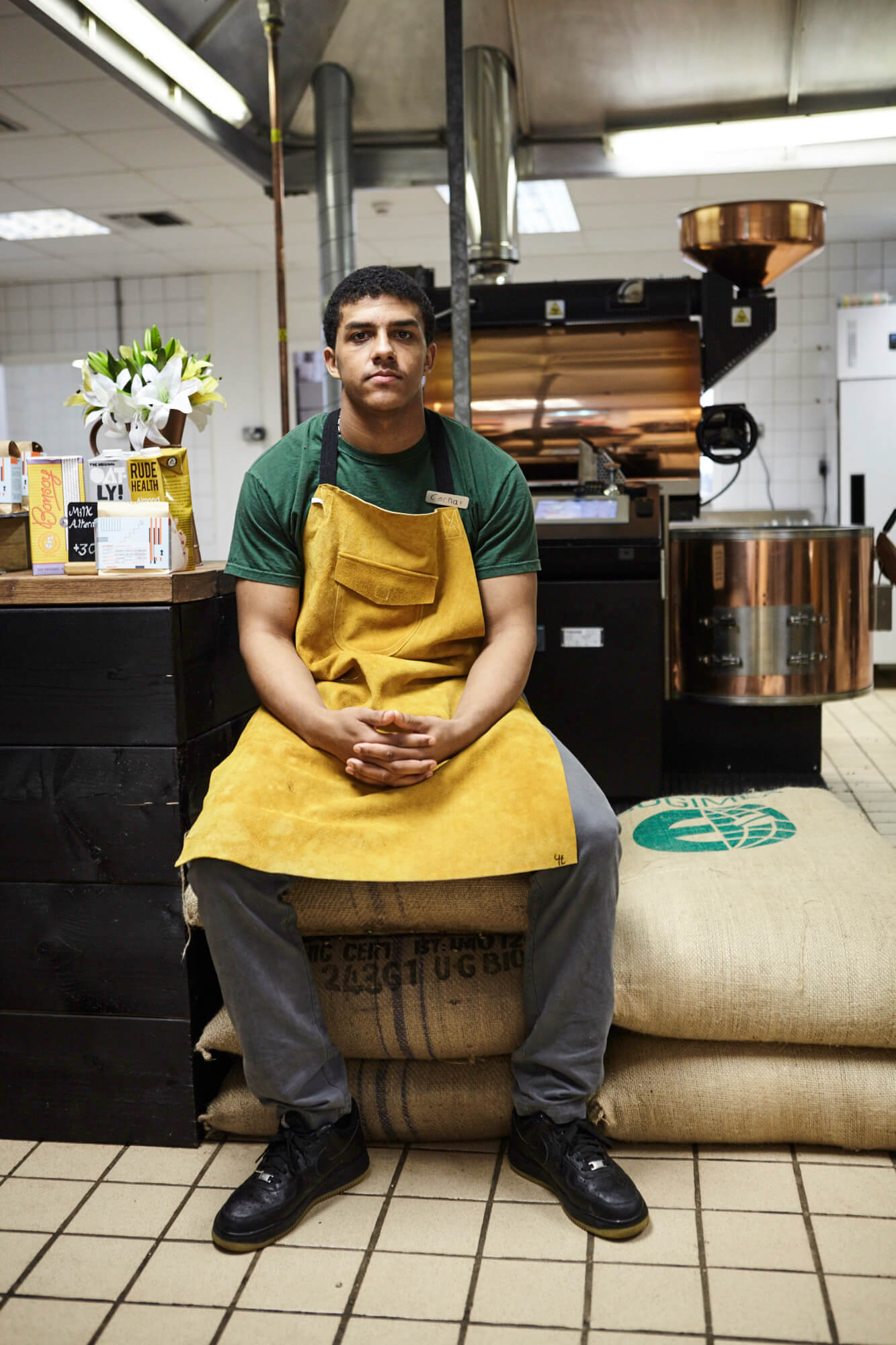
The story of Redemption Roasters is truly inspiring: a successful business that is expanding, and a worthwhile government partnership that is doing good and changes people’s life to the best, keeping young people away from breaking the law, again. Ted Rosner and Max Dubiel, two co-founders of Redemption Roasters, had a little roaster business distributing coffee and equipment to wholesale clients, when they were approached by the UK Ministry of Justice about doing barista training in one of their prisons. At the time the roasters were looking to scale up production so they pitched a concept in which they would not just do barista training but open a full-scale roastery and barista academy inside of a prison. The idea of this being to start a brand that would tell the story.
Troubled Youth
According to Youth Justice Statistics 2016/17 made by UK Ministry of Justice , the number of average population of young offenders in custody is 868. Of the nearly 73,000 proven offences by children and young people in the latest year, the main offence types were: violence against the person (28%), other offences (12%, of which a third were vehicle theft/unauthorised taking) and criminal damage and theft and handling stolen goods (both 11%). “I think the reason why people break the law at a young age is that there is a lack of opportunity and inherent socio-economic problems.,” says Max Dubiel.
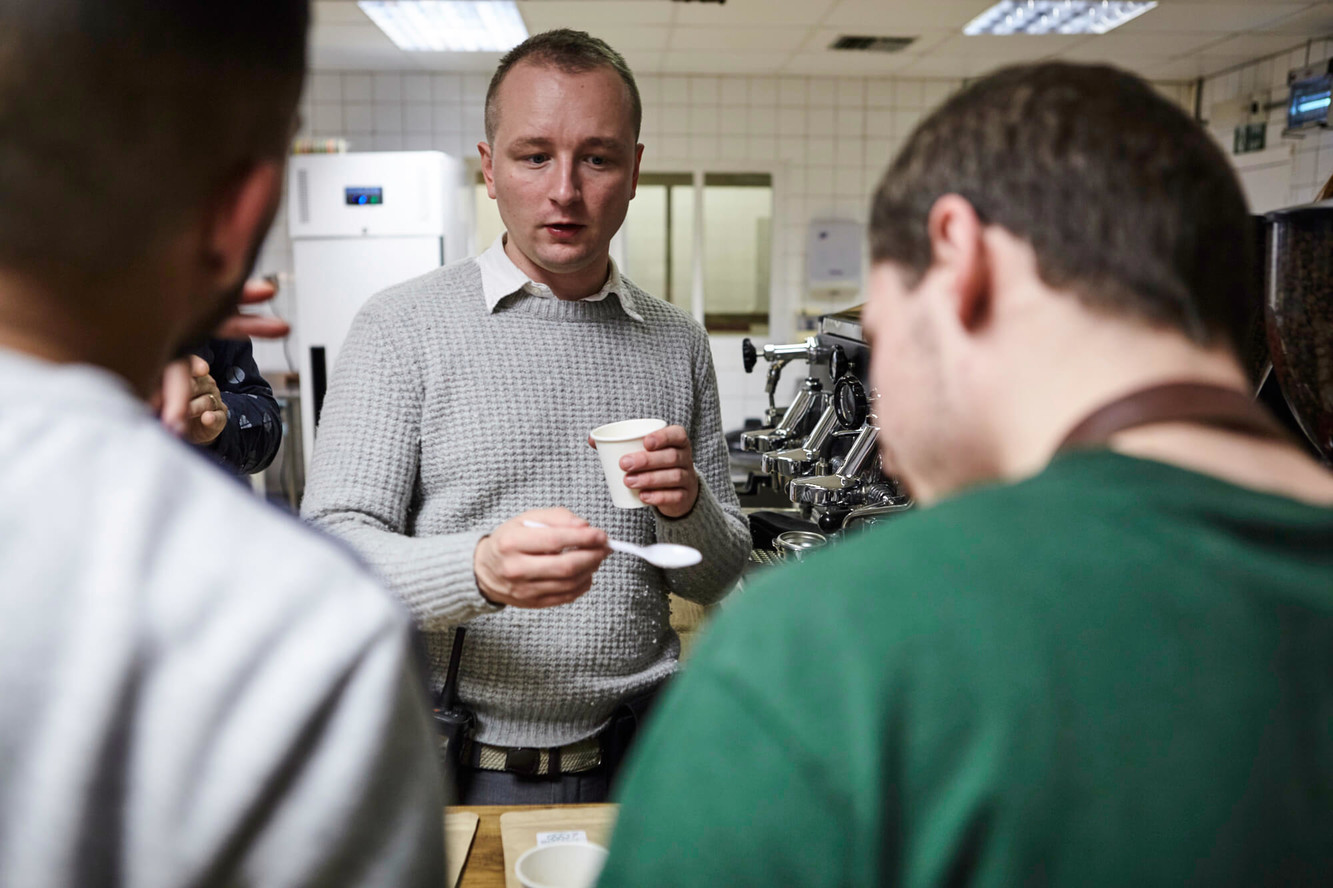
On the other hand, same young people are more likely to break the law again if not given any other opportunities after they are released from custody. “Simply put, a lack of skills and no job leads young to chose a wrong path again. Ex-offenders with skills and a job are 50% less likely to reoffend,” continues Max. The UK’s re-offending rates are amongst the highest in the Western World, and it’s costly on both a national and personal level. 46% of prisoners in England and Wales go on to commit another crime within one year of being released. Reoffending costs the Treasury an estimated £4.5 billion every year (£131,000 for every re-offender). Only 36% of prisoners manage to find work within two years of being released. If prisoners do find employment, they are twice less likely to return to prison.
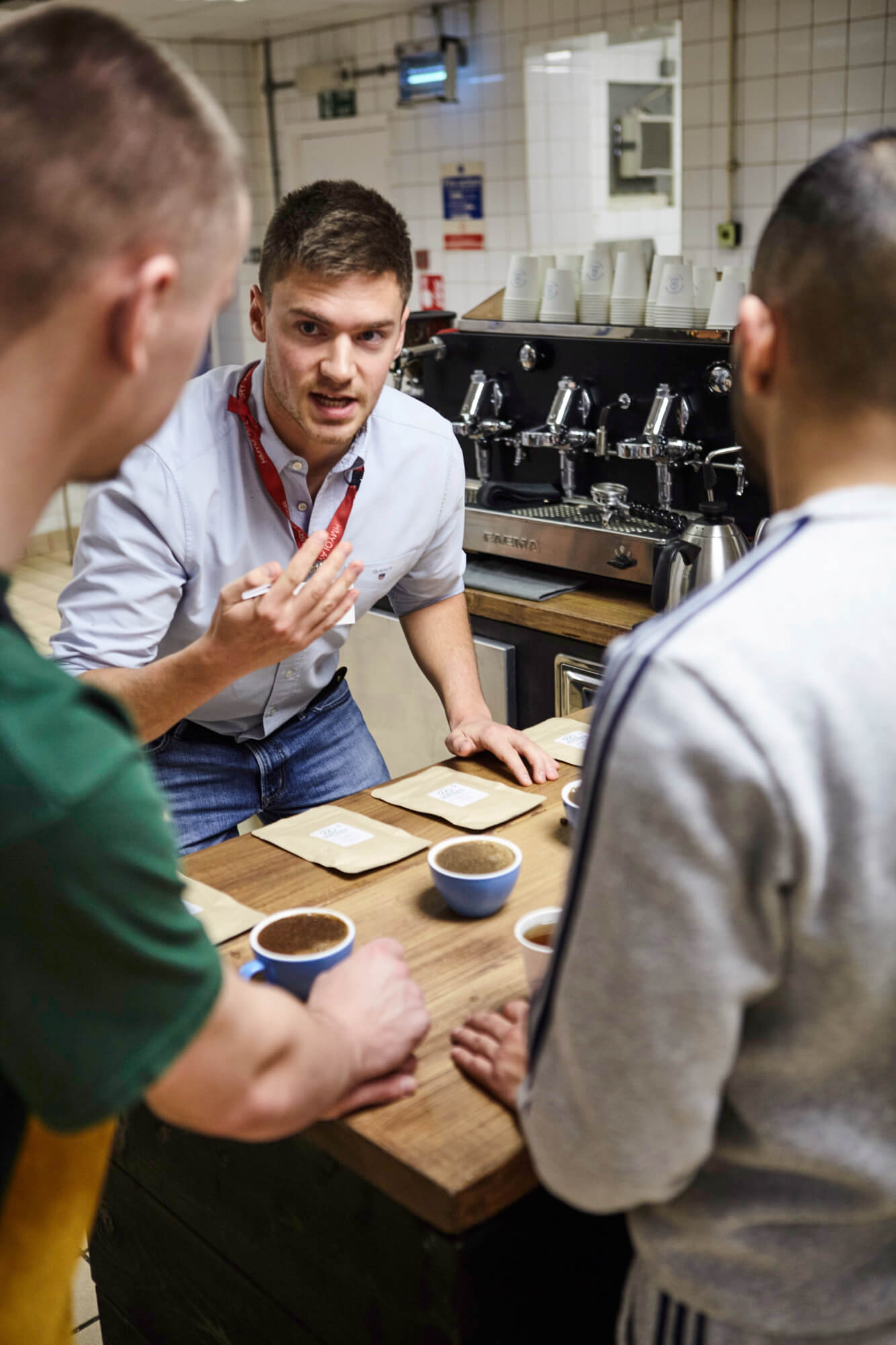
The Redemption
Redemption Roasters started their work with a very high benchmark: Her Majesty’s Prison Aylesbury. HMP Aylesbury is a Young Offender Institution situated in Aylesbury, Buckinghamshire, England. The prison is famous for being one of the toughest teenage prisons in UK, there is even a documentary about it, most of young men in custody are gang-members or people who are not new to prisons. Helping young men to learn new skills, there are a number of private-sector work initiatives in prisons as well as educational courses. Common examples of work done by prisoners in the UK are: sorting recycling or waste, mail-related manual tasks and call handling. Some are better at preparing offenders for the outside, some are worse. Very few market their concepts, most keep it quiet and do not promote their ideas outside of the prison.
On contrary, Redemption Coffee Roasters try to promote the concept of their work to the outside world as much as they can to show the coffee community and the world that a positive commercial environment can be created behind bars and that exceptional specialty coffee can come from places and people you wouldn’t expect. Right now the roasters provide a 5-days-a-week program with a syllabus that covers everything somebody new to specialty coffee will need to know in order to credibly apply for a job at some of the best third wave shops in London. They roast on a Petroncini and teach on Sanremo and Faema machines with Mazzer and Mahlkoenig grinders. Never the less, only best student can become roasters as roasting comes at the very end of curriculum. “Only the most advanced baristas will be introduced to roasting. And we are heavily oversubscribed at the workshop, only the most passionate candidates will be allowed to be part of our workshop.”
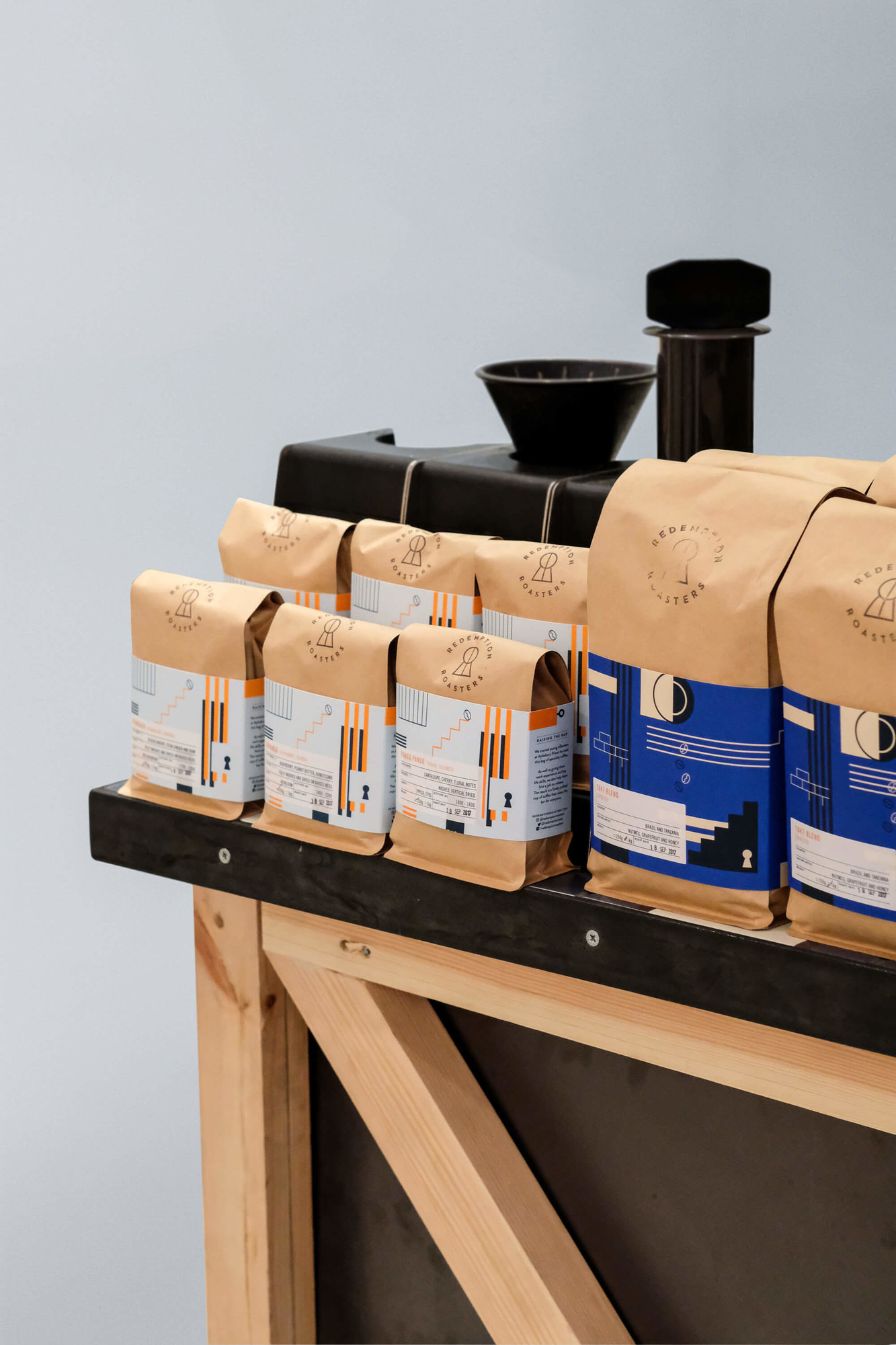
Not a Charity
Prisoners are all paid for work undertaken during their sentence. Prisoners’ rates of pay depend on several factors, including their behavioral record, and controlled by the Justice System and also each individual prison. When freshly graduated baristas are released from HMP Aylesbury, they have much more opportunities to find a job and start a stable life. Redemption Roasters hire their graduates to work in their coffee shop in London, as well as refer them to their wholesale clients. For now it is too early to see the result of hard work that Redemption Roasters’ team has done: “We have only been up and running for 6 months, but we already see great changes in the young trainees we teach. They behave better on the wings, they show great passion in what they do which is rare for young offenders.”

In the future Redemption Roasters hope to open several coffee shops throughout London and more barista academies in other prisons throughout the UK, including female prisons. Doing projects like this, Redemption Roasters are not a charity at all, they are commercial private company, where the business is run on ‘profit for purpose’ principles; they do not consider commercial motivation to be contradictory to a social commitment. The team does a great job, helping the community, while together with the young offenders they roast great coffee and build a successful business. Every month they produce 8-10 tones of excellent coffee that they sell and prepare coffee with in their shop in 84b Lamb’s Conduit Street, London.
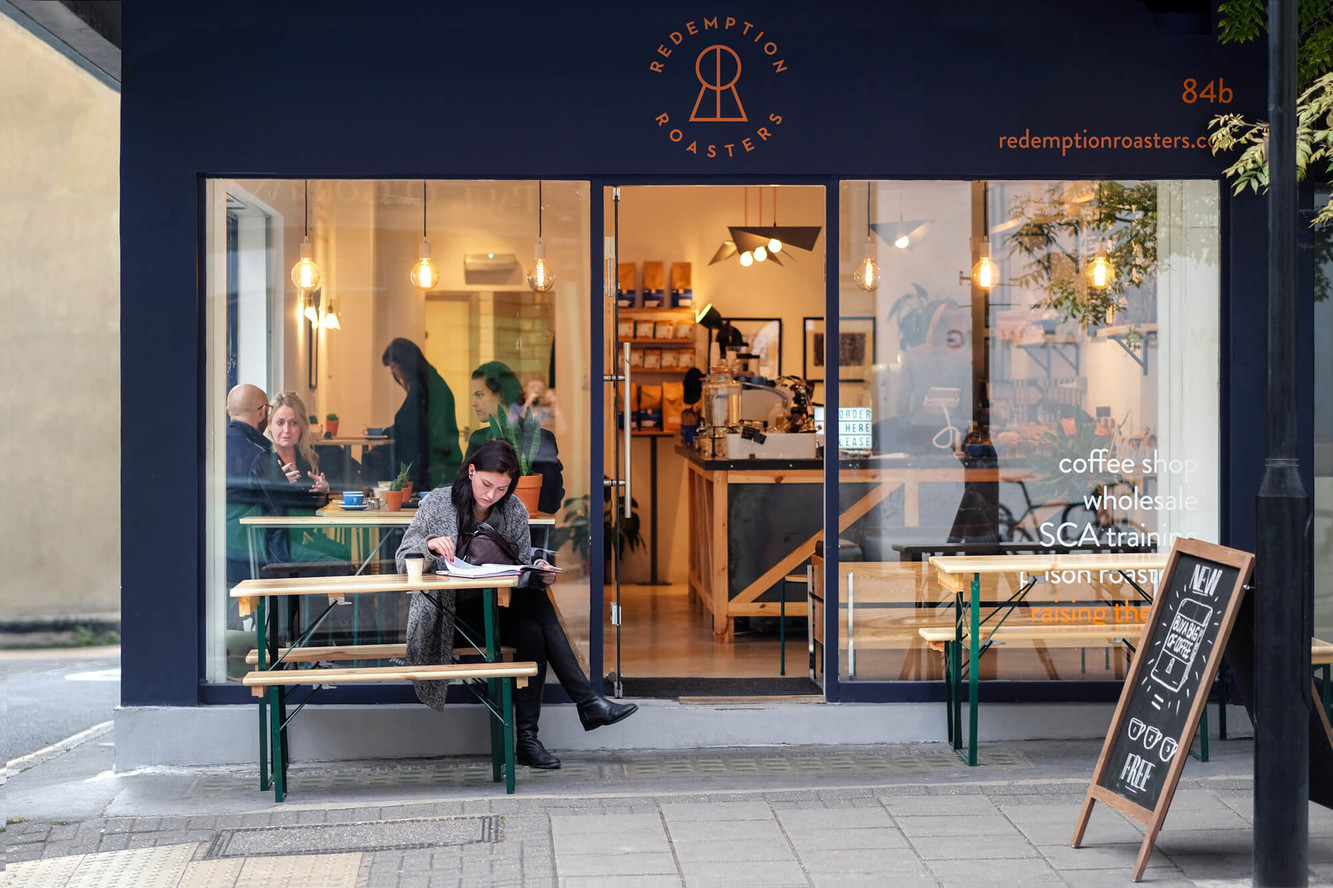










NO COMMENT